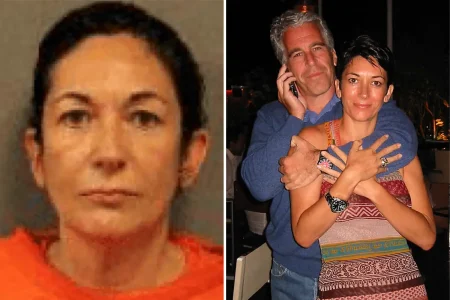Assistant Manhattan District Attorney Dafna Yoran has taken a significant position in the trial concerning Daniel Penny, who is accused of manslaughter in the death of Jordan Neely during a subway incident. On Tuesday, Yoran urged jurors to deliver a conviction, drawing attention to the prosecutorial stance that asserts Penny’s actions directly resulted in Neely’s death. This trial follows a broader conversation surrounding criminal justice and the handling of violent incidents in New York City, where views on accountability and criminal behavior often clash. Yoran’s approach contrasts with her earlier actions during the prosecution of Matthew Lee, who was convicted of killing 87-year-old Dr. Young Kun Kim over a petty robbery in 2019, raising questions about consistency in prosecutorial philosophy and the application of justice.
In 2018, Matthew Lee attacked Dr. Kim, a former professor, at an ATM, leading to the elderly man’s death from a head injury sustained during the assault. Lee’s eventual conviction was seen as a pivotal moment in a broader movement towards “restorative justice,” a principle aimed at rehabilitating offenders rather than prescribing punitive measures. This philosophy gained traction under then-District Attorney Cyrus Vance Jr., reflecting a shift in how the legal system approaches violent crime and its repercussions, particularly in contexts involving marginalized or vulnerable individuals. Yoran utilized this newly embraced approach in Lee’s case, suggesting a transformative potential in how the justice system interacts with both victims and offenders.
The concept of restorative justice allows for dialogue between victims’ families and perpetrators, aimed at healing rather than mere retribution. Jinsoo Kim, Dr. Kim’s son, participated in this process and publicly forgave Lee, stating that choosing not to harbor hate was integral to his own healing journey. His willingness to engage with Lee emphasized the notion that personal recovery can sometimes be prioritized over strict punitive measures. This perspective led to Lee being charged with manslaughter rather than felony murder, which could have resulted in a much harsher sentence. Such decisions have sparked debate about the efficacy and morality of restorative justice in cases of severe violence.
Critics of this approach, including defense attorney Louis Gelormino, argue that it perpetuates a culture of leniency towards crime, undermining public safety and accountability in serious cases. They assert that the justice system’s tendency to lean toward leniency, especially in violent crimes, can lead to a broader erosion of law and order. As the case against Penny unfolds, tensions surrounding the delineations between manslaughter and justified actions are central themes in the discussions of public safety, self-defense, and societal norms related to law enforcement and crime prevention.
In the context of the trial, Yoran’s closing arguments reflected the complicated dynamics at play. She emphasized the necessity of holding individuals accountable for their actions while navigating the pervasive issues of systemic failures that often accompany urban crime. As jurors began deliberations, the prosecution’s challenge was to assert that the evidence substantiated a clear narrative of guilt beyond reasonable doubt. Yoran’s argument implied that neglecting individual responsibility in favor of blaming broader systemic issues would undermine the pursuit of justice for Neely’s death.
As we observe the developments in both cases—the prosecution of Daniel Penny and the sentencing of Matthew Lee—it’s evident that each reflects broader societal debates surrounding criminal justice. The discussions involving restorative justice, public safety, and accountability continue to shape how cases are handled in Manhattan and beyond. Whether through leniency based on forgiveness or the push for strict accountability, the implications for future cases and the judicial system’s approach to violence in urban areas remain a critical discourse within the domain of criminal law and ethics. As the jurors deliberate Penny’s fate, the outcome may not only have ramifications for those involved in the trial but also for the ongoing evolution of justice reform in America.











